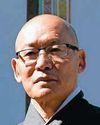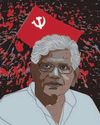
This year is the year of the moon. Apart from India’s valiant attempt to land on the moon's south pole, it is the 50th anniversary of the moon landing of the Apollo 11. As Neil Armstrong, the first man to step on the moon, said, “That is one small step for man, one giant leap for mankind.”
The 50th anniversary celebrations brought back focus on Armstrong's death on August 25, 2012. As part of a legal settlement, details of his death were not publicly known until recently. According to a report in The New York Times on July 23, Armstrong was hospitalised for a cardiac bypass surgery. After the procedure, he was reportedly recovering well. Two days after the surgery, the family was shocked to hear that he had died unexpectedly at the hospital.
After the surgery, once the heart recovers from the bypass, removing pacemaker wires inserted into the heart is a routine procedure. Usually the wire comes off easily. But in Armstrong’s case, when a nurse tried to pull the wire, he started bleeding and his blood pressure dropped. The doctors could not save him.
As per the NYT report, multiple medical errors led to Armstrong’s death. The hospital settled the case with his family for about US$5.5 million (₹39.21 crore) and most of the details were kept confidential.
If this can happen to Armstrong, what about the rest of us? About 44,000 to 90,000 patients die in the US from medical errors, states the Institute of Medicine's report—To Err is Human. The actual global number is not clear owing to lack of proper data collection.
Esta historia es de la edición September 29, 2019 de THE WEEK.
Comience su prueba gratuita de Magzter GOLD de 7 días para acceder a miles de historias premium seleccionadas y a más de 9,000 revistas y periódicos.
Ya eres suscriptor ? Conectar
Esta historia es de la edición September 29, 2019 de THE WEEK.
Comience su prueba gratuita de Magzter GOLD de 7 días para acceder a miles de historias premium seleccionadas y a más de 9,000 revistas y periódicos.
Ya eres suscriptor? Conectar

A golden girl
One of India's most formidable beauties passed away earlier this month. The odd thing is she would absolutely hate this obituary; she hated being written about and avoided publicity for all of her nine decades. Indira Aswani was 93 when she died. But anyone who encountered her, even briefly, was in such awe of her grace and poise, and one could not but remember her forever.

The interest in wine is growing delightfully in India
The renowned British wine writer and television presenter Jancis Robinson, 74, recently came to Delhi and Mumbai to reacquaint herself with India's wine industry. This was the Robinson's fourth visit to India; the last one was seven years ago. On this trip, Robinson and her husband, restaurateur Nicholas Lander, were hosted by the Taj Hotels and Sonal Holland, India's only Master of Wine.

United in the states
Indian-Americans coming together under the Democratic umbrella could get Harris over the line in key battlegrounds

COVER DRIVE
Usage-driven motor insurance policies offer several benefits

GDP as the only measure of progress is illogical
Dasho Karma Ura, one of the world's leading happiness experts, has guided Bhutan's unique gross national happiness (GNH) project. He uses empirical data to show that money cannot buy happiness in all circumstances, rather it is family and health that have the strongest positive effect on happiness. Excerpts from an interview:

India is not a controlling big brother
Prime Minister Tshering Tobgay considers India a benevolent elder sibling as the \"big brotherly attitude\" is happily missing from bilateral ties. He thinks the relationship shared by the two countries has become a model of friendship not just for the region, but for the entire world. \"India's attitude is definitely not of a big brother who is controlling and does not allow the little brother to blossom and grow,\" says Tobgay in an exclusive interview with THE WEEK.

Comrade with no foes
Lal Salaam, Comrade Yechury-you were quite a guy!

Pinning down saffron
In her first political bout, Vinesh Phogat rides on the anti-BJP sentiment across Haryana

MAKE IN MANIPUR
Home-made rockets and weapons from across the border are escalating the conflict

SAHEB LOSES STEAM
Coalition dynamics and poor electoral prospects continue to diminish Ajit Pawar's political stock